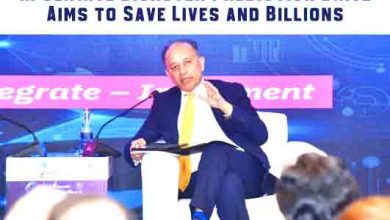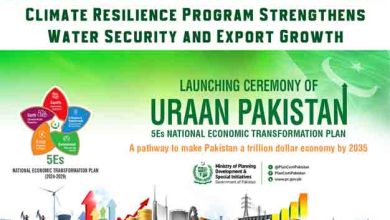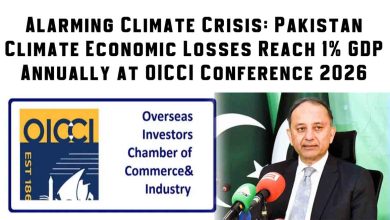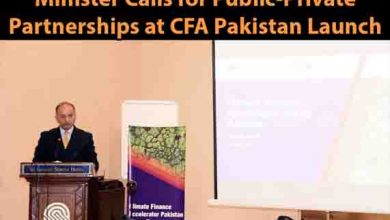Top 10 Climate Disasters 2025 Reveal a Shocking $122 Billion Global Crisis
Top 10 Climate Disasters 2025 caused $122 billion in damages worldwide. From Pakistan floods to California wildfires, climate change impacts worsened by fossil fuels.
The Top 10 Climate Disasters 2025 have exposed a grim reality: climate change is no longer a future threat—it is a present and escalating global emergency. According to Christian Aid’s latest report, Counting the Cost 2025, the ten costliest extreme weather events of the year caused a combined $122 billion in damages, killing thousands and displacing millions worldwide.
Overview of Top 10 Climate Disasters 2025
The Top 10 Climate Disasters 2025 each caused over $1 billion in damages, driven by extreme heat, floods, droughts, cyclones, and wildfires. While insured losses form the basis of these estimates, experts warn that the true economic and human costs are far higher—especially in developing nations with limited insurance coverage.
Christian Aid emphasized that these disasters reflect a pattern of worsening climate extremes, intensified by greenhouse gas emissions and continued fossil fuel dependence.
Asia Bears the Heaviest Climate Burden
Asia accounted for four of the six costliest climate disasters in 2025. The region experienced catastrophic floods, cyclones, and typhoons that killed thousands and displaced millions.
This highlights Asia’s extreme vulnerability to climate change, particularly South and Southeast Asia, where dense populations and weak infrastructure magnify disaster impacts.
Pakistan Floods: A Regional Tragedy
Among the Top 10 Climate Disasters 2025, flooding in Pakistan proved especially devastating.
- Deaths: Over 1,860 people
- Economic loss: Up to $6 billion
- Pakistan affected population: Over 7 million people
Pakistan, already one of the world’s most climate-vulnerable countries, faced widespread destruction of homes, crops, roads, and schools.
California Wildfires Become the Costliest Disaster
The Palisades and Eaton wildfires in California topped the list as the most expensive climate disaster of 2025, causing over $60 billion in damages.
Prolonged drought, record-breaking heatwaves, and dry vegetation turned wildfires into unstoppable infernos—destroying thousands of homes and forcing mass evacuations.
Southeast Asia Cyclones and Flooding Crisis
In November 2025, cyclones and floods swept across Southeast Asia, affecting:
- Thailand
- Indonesia
- Sri Lanka
- Vietnam
- Malaysia
These disasters killed over 1,750 people and caused $25 billion in damages, making them the second costliest in the Top 10 Climate Disasters 2025.
China’s Deadly Floods and Economic Losses
China ranked next on the list due to severe flooding that:
- Displaced thousands
- Killed at least 30 people
- Caused $11.7 billion in damages
Urban flooding intensified by extreme rainfall overwhelmed drainage systems, highlighting infrastructure vulnerabilities even in major economies.
Philippines Typhoons Displace Millions
Typhoons in the Philippines caused over $5 billion in damages and displaced 1.4 million people. Communities faced food shortages, destroyed livelihoods, and long-term recovery challenges.
Climate Disasters Across Every Continent
The Top 10 Climate Disasters 2025 confirm a disturbing fact: no continent was spared.
- Brazil: Prolonged drought
- Spain & Portugal: Summer wildfires
- Australia & Réunion Island: February cyclones
- UK: Wildfires triggered by record heatwaves in Scotland
- Canada: Widespread drought
- Iberian Peninsula: Record-breaking fires
This global pattern underscores the accelerating pace of climate disruption.
Climate Crisis Fueled by Fossil Fuels
“These disasters are not natural,” said Emeritus Professor Joanna Haigh of Imperial College London.
“They are the predictable result of continued fossil fuel expansion and political delay.”
The report strongly links fossil fuel companies to rising emissions, calling for immediate energy transition and accountability.
Why Poor Nations Suffer the Most
While financial losses dominate headlines, human suffering remains undercounted. Poorer nations—responsible for minimal emissions—face the deadliest impacts.
Examples outside the Top 10 include:
- Nigeria floods (May): Up to 700 deaths
- DR Congo floods (April): Thousands affected
- Iran & West Asia drought: 10 million people at risk of water evacuation
“These communities lack insurance, infrastructure, and resources to recover,” noted Christian Aid.
Urgent Global Calls for Climate Action
Patrick Watt, CEO of Christian Aid, warned:
“These climate disasters are a warning of what lies ahead if we do not accelerate the transition away from fossil fuels.”
Mohamed Adow, Director of Power Shift Africa, added:
“While wealthy nations count money lost, poorer nations count lives lost.”
The report urges:
- Scaled-up climate finance
- Faster emissions reductions
- Stronger adaptation support for the Global South
Conclusion: A Defining Climate Warning for the World
The Top 10 Climate Disasters 2025 are more than statistics—they are a powerful warning. With $122 billion in damages, millions displaced, and thousands dead, the cost of inaction is rising rapidly.
Without urgent global cooperation, fossil fuel phase-out, and climate justice financing, 2025 may soon look mild compared to what lies ahead.







